I have finally seen „The Dark Knight Rises“, and I want to adress / blog / discuss some ideas and storytelling problems.
I had big fun (4 out of 5 stars), recommend it, and really enjoyed the experience.
There are, however, 3 1/2… problematic aspects that I want to talk about.
The nerdiest / most debatable one is the question of what makes Batman such a great / attractive pop culture hero:
.
Part ½:
an overpowered power fantasy?
.
For better or worse, „Batman“ comics of the last 30+ years have shown Bruce as a crazy prepared, incredibly skilled, type A-ish, micromanaging, relentless and very, very stiff person: He does NOT make tactical mistakes. He does have a plan a… but also a plan b, plan c and plan z. Even if it look like he is not in control… he is.
As a detective, Bruce is as brilliant, cold, skilled and infallible as Sherlock Holmes. As a martial arts fighter, Bruce is on par with Bruce Lee. As a playboy and womanizer, his espionage, camouflage and psychological skills are on par with James Bond… AND he has the same kind of crazy gadgetery: Bruce is the alpha male. The ultimate self-made man. The pinnacle of human ambition. The un-thwartable, un-killable, un-defeatable chessmaster.
This is not a power fantasy that I, personally, find very attractive: I don’t like James Bond. I don’t like controlled, smug, overbearing heroes. I stopped liking MacGyver in elementary school. And I would rather root for the underdog than for a sports team, politician or pop band that already, through smart tactics and all the right moves, IS at the top of it all.
That’s why I like rash, sometimes irrational heroes like Green Arrow or Catwoman. That’s why I relate to „emotional“, loyal, outspoken characters like Clark Kent and Diana (Wonder Woman). Bruce is, all in all, a pretty joyless, angry, competitive and cold person / fantasy / hero.
Luckily, this doesn’t mean that „Batman“ comics / stories can’t be a lot of fun: On a philosphical / ethical level, most „Batman“ stories are about control, and about its‘ limits:
Does Bruce have control over his heart / emotions? And is that a good thing? What happens when bad girls or more temper-driven people like Talia al’Ghul, „Catwoman“ Selina Kyle, Silver St. Clare [the romantic foil of Grant Morrison’s „Batman: RIP“ storyline] or „Huntress“ Helena Bertinelli stand in his way?
And, of course: What happens when anarchists and irrational villains like the Joker, Jason Todd, Harley Quinn use chaos, tempers, humanities‘ less rational instincts to fight his own ideals of order and control?
“The Dark Knight“ (the 2008 movie) was an excellent, smart exploration of these themes, and a big personal favorite, because it managed to show what made Batman both attractive and heroic… and scary, dysfunctional and ineffective / naive.
Another thing that’s great about Bruce’s less-than-pleasant personality is that his SUPPORTING CAST is full of people that contrast and oppose him in surprising, crazy likeable ways: Dick Grayson (the first Robin) is more joyful and adventurous, and loves to work with friends. Stephanie Brown (the only female Robin) is perky, quirky, crazy optimistic. As a person, Bruce is often the least funny, least engaging, least relatable and most… infuriating character in the room – and it’s always big fun for the supporting cast to bounce off him.
That’s something the Christopher Nolan movies managed to do quite brilliantly, too: If we LOVE characters like Alfred, Gordon or Harvey Dent, it’s only because of the stiff, sad sack that sets up all their wry one-liners, emotional reactions and personal quirks:
If you dislike Bruce, you will… love large parts of the „Bat-family“.
[One of my all-time favorite stories is „Bruce Wayne: Murderer?“, a convoluted and not-too-interesting crossover storyline where Bruce, framed for murder, does not want help from any of his friends and associates and decides to go to prison, all alone: The first trade paperback collection featured some 150 pages of great, loveable, fun characters telling Bruce: „We want to help you. Stop being an idiot! This does not make sense!“. It really DID not make sense… and it was very nice to hear all these characters aknowledging it: „http://www.goodreads.com/book/show/106059.Batman„]
With all that said, I do love the „Batman“ mythos best when the writers tell stories about the idiosyncrasies and surprises of society, when Bruce faces inter-personal curveballs; the moments when a dark and bitter control-freak learns that he DOES NOT have that much of control of his world, after all.
I don’t think I’m alone in this, either: The whole of „The Dark Knight Rises“ gives us tons of moments when we see Bruce suffer, fail and struggle.
[That’s what makes Scott Snyder’s dark, dramatic and nightmarish recent „Court of Owls“ storyline so rewarding, too: Bruce is slipping. Things are out of control. His ideas / illusions about Gotham are challenged, then shattered: „http://www.goodreads.com/book/show/13223349-batman-vol-1„]
On these (personal) standards and expectations, the Bruce Wayne character of „The Dark Knight Rises“ is… a wimp. An amateur. A „Green Arrow“-like, sloppy, reckless, out-of-control, hot-headed weirdo:
Why did he smash / destroy the TV inside Bane’s prison – his only way to get information about Gotham? How could he park / leave The Bat on a skyscraper, and only hide it behind a camouflage tarp? Why did he choose to fight Bane in broad daylight, with hundreds of armed criminals brawling around them (and how come they didn’t focus on Batman and concerted their efforts to put him down?).
When he was fleeing the police on his motorcycle, the last-minute escape over the truck-ramps seemed like sheer, dumb luck. When he was told that the Wayne Foundation didn’t fund the orphanage… how did a business failure/fact like that manage to escape his attention for a couple of years? And when he spent nearly five (!) months in prison, how come he didn’t piece together Bane’s history / personal details himself? Hell… why didn’t he SPEAK Arabic, fluently? The Bruce Wayne of the comic books speaks EVERY language, because he’s the most brilliant guy in the world.
I’m not saying that I like Bruce as an overpowered, unrealistic, perfect character.
Or that I WANT to follow the stories of a guy who is ALWAYS prepared and ALWAYS in control.
But I think that the „The Dark Knight Rises“ (more than „The Dark Knight“) tried to have it both ways, and I found the moments when Bruce was clueless or badly prepared or overpowered jarring and unsatisfactory… because they were always framed with / followed by moments where he WAS the perfect, downright cartoonish renaissance man of the comics:
I have NO clear ideas about movie-Bruce’s skills, limitations and flaws, and I found that he seemed both too competent and too clueless a lot of the time: If Bruce IS a perfect, self-made pinnacle of human ambition… his conflicts, themes and foils are clear.
If Bruce IS a broken, scarred, conflicted and emotionallly hapless guy in a suit, in too deep… his conflicts, themes and foils are clear, too. “The Dark Knight Rises“ tried to tell both these stories… and for someone who is used to the frustrations and behavior of comic-book-Bruce, movie-Bruce was, sadly and frustratingly… a wimp. 😦
[One last side note: I did read Dennis O’Neill’s 1995 novelization of the important „Knightfall“ storyline in 2010, and I was surprised that as late as the early 90ies, comic-book Bruce was less in controll and much more amateurish, too: „http://www.goodreads.com/book/show/51080.Batman„
THIS is the storyline were Bruce was „broken“ by Bane, and a major inspiration for the movie. And it is only fitting that THIS, earlier Bruce has traces of a dangerous, out-of-control idiot that I find in the „The Dark Knight Rises“ movie, too: Both these versions of the character are less perfect (and: more exciting) than modern-day comic-Bruce.
The only problem: modern-day comic-Bruce would tell them that they are a menace to society, that they lack control and that they should go home before they endanger themselves and others. 🙂 ]
.
Part 1:
an homage-riddled meta movie?
In 2008, when I saw „The Dark Knight“ (in Stuttgart, in July, with my 15-year-old sister), I had read less than 15 „Batman“ storylines / trade paperback collections.
All the storylines and moments „The Dark Knight“ borrowed from (most notably: The „Jokers and Madmen“ arc of „Gotham Central“) weren’t on my radar, and while I discovered them later on – to great joy… „http://www.goodreads.com/book/show/6375833-gotham-central-book-two„
…there was no way the movie could have disappointed or alienated me by straying too far from the source material: I HAD read the other important „Batman“ comic that helped influence the „The Dark Knight“ script, „The Long Halloween“, and liked it a lot… „http://www.goodreads.com/book/show/106069.Batman„
…but for my moviegoing experience, this really did not seem very important. With „The Dark Knight Rises“, things had changed, though: I have nearly 70 „Batman“ books on my shelves, and maybe twice as many crossovers and batfamily titles. I’m a big fan of Nightwing, I like Talia (when she is written well), and I spent spring and summer reading EVERY „Catwoman“ book I could get my hands on, in preparation for a longer essay about Selina in the comics… and her role in „The Dark Knight Rises“.
Four years ago, my sister LOVED „The Dark Knight“. That same christmas, I gave the DVD to my mother, and while she had problems following the plot („The Mask was kind of gruesome, don’t you think?“ – Stefan: „What mask? Batman’s cowl? Or Two-Face?“ – Mom: „Yes, Two-Face. The one with the green hair! He was too… shrill.“), I felt that the movie worked very, very well, regardless of your knowledge of the Batverse, super-hero tropes or „Batman Begins“, the first movie of Nolan’s trilogy.
THIS time around, my sister loved „The Dark Knight Rises“, too. But with the ties to „Batman Begins“, the character cameos and surprising revelations and the overall reliance on surprise reveals, I had NO idea how someone who was unfamiliar with… Talia, for example, would enjoy „The Dark Knight Rises“.
As a „Batman“ reader and book critic, I loved the movie and all the clever, subtle and not-so-subtle callbacks, tricks, layers and subversions. The moment Miranda Tate and John Blake showed up, there was an immense level of suspense… for me.
It was rewarding, engaging, THRILLING to try to out-guess the characters, look for clues, and ask myself if my knowledge of storylines like „Batman: No Man’s Land“ helped me to understand where the conflicts were headed. Huge fun. But: Nerdy fun. Meta fun. Fan fun. Screenwriting fun. Epistolary fun.
„The Dark Knight“ worked excellent WITHOUT these elements (or at least I, personally, wasn’t able to spot them and appreciate them, back then: I liked that „The Dark Knight“ featured at Latina GCPD officer working in the background, and I it was fun to see how my expectations („Is that Renee Montoya? Is that a cameo?“) were stirred up… and later subverted.)
„The Dark Knight Rises“, on the other hand, had a black police officer named Allen. CRISPUS ALLEN? A strawberry blonde runaway girl working with Selina. IS THAT HOLLY? I was so expecting to hear that word „Grayson“… that when I heard „Robin“ instead, I was pretty disappointed.
I think my knowledge of the comic book storylines, the source material and inspiration, helped to make „The Dark Knight Rises“ a much richer, complex experience. It brought some problems (Marion Cotillard did seem too matronly… Anne Hathaway did seem too flaky and naive… the Gotham City police seemed shockingly white, male and clueless, compared to their role in „No Man’s Land“…)
…but overall, this MADE the movie for me, and I don’t know how much I would have enjoyed it without this meta-level.
One final aside: I spent the better part of last week reading Will Pfeifer’s „Catwoman“ run, and found it to be pretty bland and generic: Selina has given birth to a daughter, and tries to make a fresh start, away from the dangers of her old neighbourhood and „Selina Kyle“ identity.
Pfeifer’s story raises intelligent questions about outrunning your past, hiding behind masks and putting your friends in the line of danger… but the conflicts dragged on, and the resolutions were messy and poorly thought-out: I went away from his book, knowing that I do not want anyone else to read this. It was sub-par storytelling, and it retroactively spoiled / ruined the great START of this „Catwoman“ volume, written by Ed Brubaker.
With „The Dark Knight Rises“, Pfeifer’s run is a little redeemed, and might even work well for people who are interested in movie-Selina: When Anne Hathaway talked about the fact that nowadays, she cannot outrun her past or delete herself from the files of the police, I had to smile: „Tell me about it, girl: THIS is what Will Pfeifer’s 30-plus chapters of the ‚Catwoman‘ book have been about. And they were SO tedious… I can completely understand your ennui.“ 🙂
(All in all, „The Dark Knight Rises“ is not the best movie for Catwoman fans, because in the comics, Selina is quite often the sharpest, smartest, most reasonable and pragmatic person in the room. In the movie, though, she seemed wishy-washy, clueless, annoyed and egocentric, and I never felt like „This person is smarter than Bruce.“ or even „While Bruce has inhibitions and neuroses, Selina is flexible enough to get MORE work done, and deal with harsher, more complex realities.“)
Plus, as a final aside: The scene where rich playboy Bruce Wayne visits attractive, free-spirited Selina Kyle in her cluttered, cushy apartment and enjoys her sense of style… reminded me of a scene in „Vanilla Sky“ where rich playboy David Aames visits attractive, free-spirited Sofia Serrano in her cluttered, cushy apartment and falls in love with her, forever. For an inebt, self-centered character played by Tom Cruise, this makes sense. For Bruce Wayne (and Chris Nolan), it just seemed like lazy characterization.)
.
Part 2:
a movie about… what, exactly?
.
I really enjoyed the symbolism of the movie, and the ways that Bruce and/or Batman DID „rise“ multiple times / on multiple levels.
On a more basic level of structure / storytelling, there is an unexpected flaw in this movie, though: I have no idea what it is ABOUT.
Chris Nolan wrote that „Batman Begins“ was about Fear, „The Dark Knight“ was about Chaos, and „The Dark Knight Rises“ centered on Pain. This is not the word / main motif / theme that I would have chosen… but I can see it, and I don’t think that every movie HAS to be about ONE definite thing. It’s sad, though, that the „chaos“ theme of „The Dark Knight“ works really, really well throughout the movie…
…while „The Dark Knight Rises“ is a hodgepodge of multiple questions, conflicts, philosophical ideas, themes and motifs. I don’t ind that the movie is BUSY. I don’t mind that the script takes wild twists and turns. I enjoyed the big revelations and unexpected moments, and it was a very fulfilling and satisfying cinematic… experience: I was NOT bored for 165 minutes, and there was all this awesome stuff going on, often at a breakneck pace.
At the same time, the dialogue and symbolism of the movie CONSTANTLY hinted at big, important questions / conflicts / themes:
What does Gordon’s lie (and Bruce acceptance of this lie and the draconian Blackgate legizlation) MEAN… when it comes to questions of redemption, corruption, „the greater good“? What was the point… not for the individual characters (it provided great conflicts and dynamics for Gordon, Bruce and Blake)… but on this bigger, thematic level? WHY did this happen? What’s the point?
Selina wants society to forget. Is this a problem that has to do anything with… Bruce? Bane? Miranda? Lucius? Gordon? It seems SO big and topical and relevant… but I don’t think it was explored in any smart way, or tied to the other conflicts / motifs.
ONE person has the trigger? ONE random citizen, and HIS conflict between hope / humanity’s better nature and deperation, controlling the whole city? The scenario reminded me of… something, and quite hard. How does this mirror Bruce’s vigilantism and his „EVERYONE can be a hero“ speech to Gordon?
I suppose the movie was about environments and how they formed and malformed people, in SOME way. It was also about privilege. And the blue-collar class. And class warfare. With NO „normal“ Gotham citizens on display throughout a siege that took 5 months (except some clueless, big-eyed orphans), we did not see how „GOTHAM“ (that is: not the Blackgate scum. Not the noble cops. Not heroes like Blake and Gordon. But: NORMAL people, the very ones whose nature, limitations, innocence and value ALL THESE CHARACTERS spend debating) make their choices: Are they part of the angry mobs? Are they running scared? What DOES Gotham deserve, 8 years after „The Dark Knight“?
…that’s when on Facebook, a friend commented:
I think, Dark Knight already had two motives, that can be summed up with to quotes.
„some people just want to watch the world burn“ by Alfred, which is Chaos and „You either die a hero or you live long enough to see yourself become the villain.“ ehich represents the fall of of a hero and that everybody can be seduced.
On of the big flaws of Dark Knight rises in my opinion is that the overall topic of the movie is revealed at the end by Miranda, when it turns out who she really is. I think at this point all the greater topics from before get reduced to the oldest movie-topic of the world, which is revenge.
There is no bigger meaning behind „giving the city back to its people“ or so, it’s just a simple „revenge for what you did to my father“ – plot. And come on, we’ve seen this a thousand times before, right?
I have to say, for me Dark Knight rises was nowhere near as deep and fullfilling as Dark Knight and disappointing in this sense. Still an entertaining movie 🙂
.
Yes. Exactly! Thank you so much.
When people ask what is important or unique about Ras al Ghul, I’m quick to say „He is an eco-terrorist. He thinks that the environment is more important than people.“ But if I go a little deeper and REALLY try to explain / rationalize the League of Shadows („League of Assassins“ in the comic books), I quickly end with „These people are hundred of years old, and batshit insane.“ Ras IS a great, fun, pompous character, and a great foil for Bruce. But he was created in the seventies, and he’s very reminiscent of the BOND-villains of that era: a fun arch-enemy. But not the greatest, deepest philosopher.)
In lots of movies – for better or worse – you can take ALL the important characters, look for the main motif, and ask for each and every one of them: „Where do they stand, on this topic? How did they learn to deal with THIS thing?“. So… a movie like „Juno“, that is about providing babies with a good start in life, has five to ten different characters with unique ideas about what IS a „good start“. They all are different kind of providers. They all have their flaws, their backstories and their losses. But it all ties back into the main theme.
With „The Dark Knight Rises“, is really cannot say what kind of perspective… Lucius, for example… provides: He DOES serve purpose as one of many, many cogs, keeping the story running, the events unfolding, the excitement high. But I can REALLY understand how the Joker, Rachel Dawes, Harvey Dent, Bruce and Gordon related to each other, thematically, in „The Dark Knight“. This time, with THESE people… not so much. (Do Selina and Miranda, for example, contrast each other in any meaningful or intelligent way? They happen to be in the same movie, and the movie IS better for them… but IF ‚The Dark Knight Rises‘ indeed IS a complex tapestry / medition of PAIN… I don’t know how these two figure in.“
.
my Facebook buddy, once more:
Also, a lot of the things that were discussed before the release of the movie, especially after the aurora shooting, the rise of the one percent vs the 99 percent, the wall street scene and so on, …on the surface, this looked as if it had such a strong connection to the current political and economical situation. But already during this special scene, it was obvious, that Bane is not doing this to give a comment to the gready banks, it’s just a simple scam, not unlikely what the criminal guys in finance do themselves (with a little fire power added 😉 ). I have to admit, one day after the movie, I find more and more things I don’t like…
The look and feel, the general way Gotham and its citizens were represented, also was not working for me, at least in the context of the role they were supposed to play in the movie. Gotham is supossed to be this „wretched hive of scum and villainy“ to quote sth else, and Tim Burton and I guess most of the comics really can provide this image!
In Nolan’s „realistic“ Gotham, there is not a lot of all of this going on. It’s just (very obviously) the New York we all know. Now, you can probably discuss how rotten New York really is, but in todays world it is nowhere near as dangerous as the Gotham we know from the former incarnations. In the movie, there were no corrupt cops, not a lot of thievery going on (what is usually used in most of the Batman movies to give him a heroic entrance into the flick).
I guess, overall, the oprhans Gordon Levitt was trying to save were suppossed to be the representation of all that is innocent in Gotham, but for me this was just such a boring and obvious ploy by Nolan to make you care for someone living in Gotham: It also made JGL just look like a complete asshole. Leave the 20 kids on the bridge and try to save the rest of the 12 mio people in the city!!! If the bomb goes of, they are all gonna die anyway!
.
Thanks for the comments! I’ll elaborate the „Occupy“-part in a minute:
On a final side note, screenwriting-wise, I’m… amazed that people are not angrier / more annoyed at the John Blake character. A young guy who comes from nowhere an quickly upstages the heroes? A guy the SAME age as the key demographic of the movie? Who gets told by people like Bruce and Gordon how he is SUCH a great addition to the plot?
The term, for this, is „Mary Sue“. Or, with male characters: „Marty Stu“. Details here: „http://tvtropes.org/pmwiki/pmwiki.php/Main/MartyStu„
my Facebook friend, Christian, one last time:
Screenwriting wise the whole set up of the character and his relationship to bruce Wayne / Batman is very querstionable, I think. Seems to be quite easy to discover the true identity of Batman… well, you’re an orphan, I am an orphan, saw the look on your face, … bam.. you’re Batman.
Hey Bruce, think about a better cover up, when even a kid can see throuh all of this be meeting you once!
Also, shame on Gary Oldmen.. met Bruce and Batman so often and didn’t discover the similarities. Well, I guess, he is not an orphan.
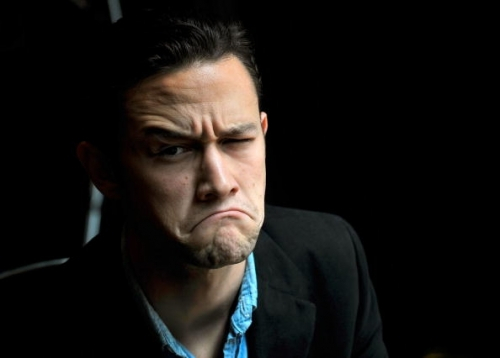
.
Part 3:
empty buzzwords? anti-„Occupy“?
.
Bane – as a concept, character and threat – worked VERY well for me. I understand his motivation. I like the conflict. I understood why he is a relevant addition to Batman’s rogue gallery from the „Knightfall“ novel AND his supporting role as a honor-obsessed, pragmatic and cold anti-hero / mercenary in Gail Simon’s „Secret Six“ comic book series. Bane might not be a very well-known or attractive / splashy villain… but I admire the choice, and I think it was ambitious and intelligent. „http://www.goodreads.com/book/show/10241987-secret-six-vol-5„
The way he undermined Gotham with a gang of angry young man seemed plausible on a „Ah! I see what’s happening here! This is going to be dark, angry fun!“ level… because Tyler Durden channeled the same kind of anger from the SAME kind of men to produce similar levels of mayhem and destruction in „Fight Club“. It’s too fresh to be a cliché, and too strategically sound / „realistic“ to strike me as plagiarism… so… it’s just „a thing“, now: The service industry is full of taciturn, smart, sardonic people our age… who want to ruin society. 🙂
That being said, I do NOT think that „The Dark Knight Rises“ makes any particularly smart point about class divides, populism, poverty, fat cats and „the public“. The movie has ALL the motifs, buzzwords and visual callbacks of any recent „Occupy“-related culture clash…
…but as a demagogue / leader / revolutionary, I’m not buying what Bane is selling, and I don’t know how or if Gotham’s citizens are: We don’t SEE them. They have no voice, no opinions and no agency in this movie. Everyone TALKS about „the public“. But they seems spectators and victims at best.
That’s what makes Selina such a wimpy and careless character in the movie, too: Did she spend five months… hunting down apple-thiefs? Is there NO way she wants to re-shape, influence, „seduce“ society? Her blonde sidekick seems… offensively stupid when she asks her if THIS is what she wanted for Gotham… and the movie lacks all answers to what REAL protesters, reformers, leftists, anti-establishment protesters etc. want. Bane’s vision is… despair: He wants to turn Gotham in the same kind of (literal) hell hole he was living in for years.
But the real-life equivalents of these unhappy Gotham underdogs / Lumpenproletariat DOES have a vision. Nolan treats these people as strawmen here, and while the conflict / scenario IS similar to the „Batman: No Man’s Land“ storyline (where Gotham is cut off from the US after it’s devastated by an earthquake, and only criminals, victims and some policemen remain in the ruins)… „No Man’s Land“ is superior in two important aspects:
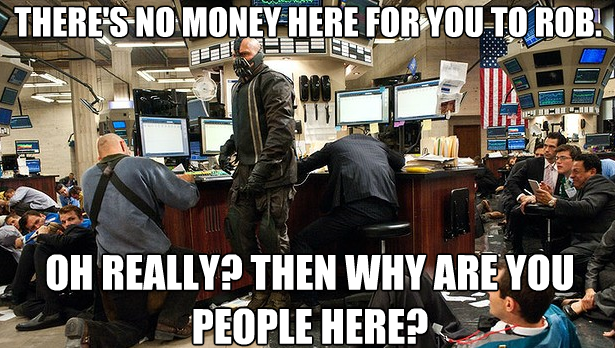 .
.
1) In „No Man’s Land“, there’s a strong „people are good, hope will prevail“ vibe when storeowners, street gangs, idealistic policemen and even characters like Two-Face and Poison Ivy work together to make Gotham a liveable place. EVERYONE has agency. And EVERYONE wants to change the city and fight the status quo.
2) In a side storyline, rogue batfamily member The Huntress, Helena Bertinelli, joins a group of rogue GCPD cops who want to share resources and build their own secure little communal place in the midst of chaos. The subplot starts fairly simple, but culminates in a depressingly plausible, complex and desperate stand-off situation where these former idealists act like a communist state, ca. 1988: It’s SUCH a great little parable about the oppressions and delusions of the eastern bloc. [„Warum bist du nicht gegangen?“, the old GDR question? „No Man’s Land“, of all places, provided a great, politically mature perspective. „The Dark Knight Rises“… did not do any of this. It just wasn’t a priority of the movie.]
10 or 20 years from now, „The Dark Knight Rises“ will look VERY much like a movie of 2012. But I suspect it will not age too well: Chris Nolan raided the iconography of today’s social movements to make the movie seem more timely and relevant. It’s window dressing. It’s hollow. And it really doesn’t do justice to ANY kind of complex economic reality. „http://tvtropes.org/pmwiki/pmwiki.php/Main/StrawCharacter?from=Main.StrawmanPolitical„
.
„Batman“ trade collections…
you might enjoy before (or: after) „The Dark Knight Rises“?
-
A similar sense of despair? Batman – out of control? 5 of 5 stars: „http://www.goodreads.com/book/show/13223349-batman-vol-1„
-
Gotham, isolated and helpless? 4 of 5 stars: „http://www.goodreads.com/book/show/107105.Batman„
-
Bane – breaking the Bat? 3 of 5 stars: „http://www.goodreads.com/book/show/51080.Batman„
-
Selina, as a sex worker / underdog / someone aware of Gotham’s harsh realities? 4 of 5 stars: „http://www.goodreads.com/book/show/59980.Batman„
-
Selina, as a „social climber“, hedonist and all around FUN character? 5 of 5 stars: „http://www.goodreads.com/book/show/154209.Catwoman„
-
Selina, as a social reformer / operative / force that’s re-shaping Gotham? 3 of 5, 4 of 5, and (it’s all worth it!) 5 of 5 stars: The first 3 collections of THIS series: „http://www.goodreads.com/series/51246-catwoman-ii„
-
Talia and her father… as goofy James-Bond-villain-like 70ies characters? 2 of 5 stars: „http://www.goodreads.com/book/show/107082.Batman„
-
Bruce… hitting rock bottom? 5 of 5 stars: „http://www.goodreads.com/book/show/106059.Batman„
-
What happens with Robins once they grow up? 4 of 5 stars: „http://www.goodreads.com/book/show/105722.Nightwing„
-
Solid fun with a John-Blake-like character? (I have not finished reading this yet. No stars.) „http://www.goodreads.com/book/show/13532153-nightwing-vol-1„
.
related Links?
- 30 years with “Green Lantern”: My interview with Sally Pascale, blogger, feminist and suburban comic book reader [Link]
- An industry in crisis: My interview with CEB, comic book critic at “Collected Editions” [Link]
.
my German comic book journalism:
- Green Arrow und Black Canary: “Helden auf der Kücheninsel” [Berliner Tagesspiegel, Link]
- Supergirl: “Mit dem Kopf voran” [Berliner Tagesspiegel, Link]
- Starman: “Alles ist erleuchtet [Berliner Tagesspiegel, Link]
- Wonder Woman: “Stolz und Vorurteil [Berliner Tagesspiegel, Link]
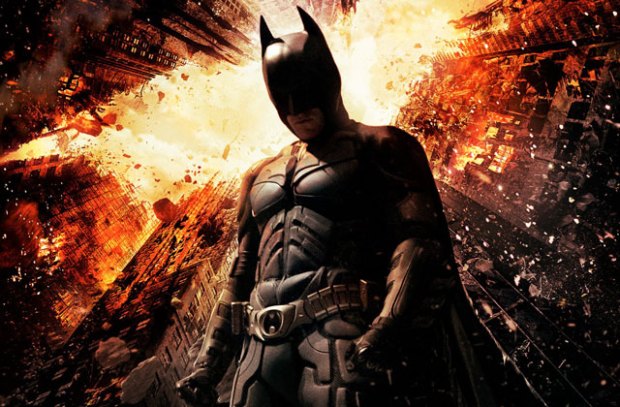
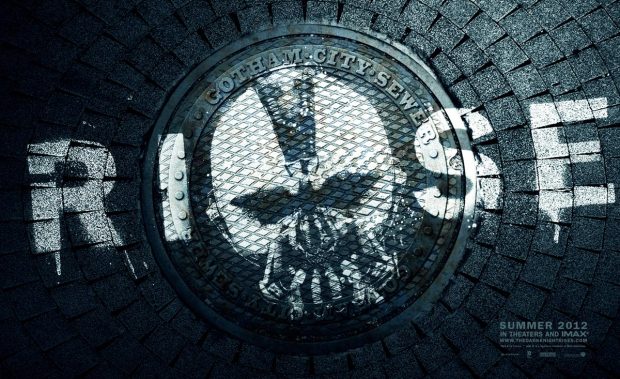
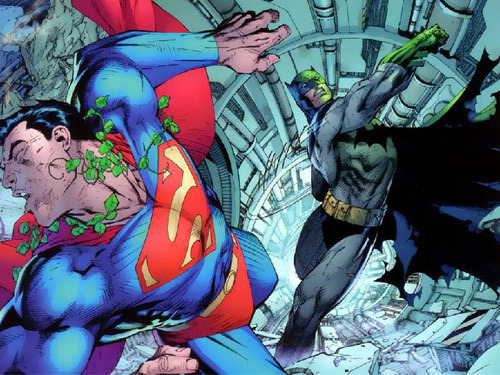
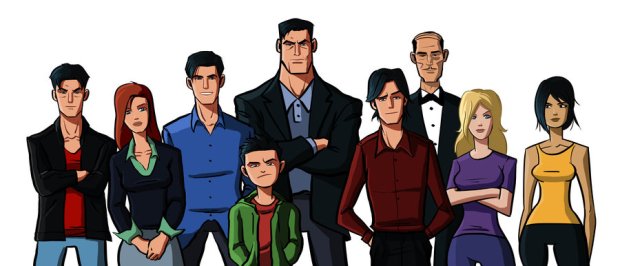
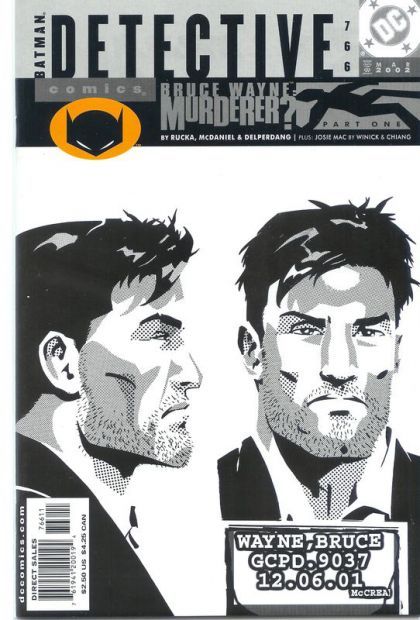
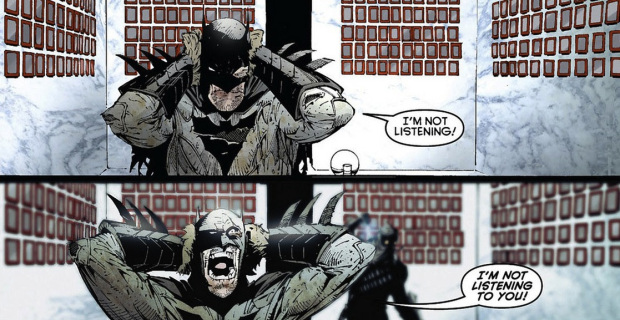
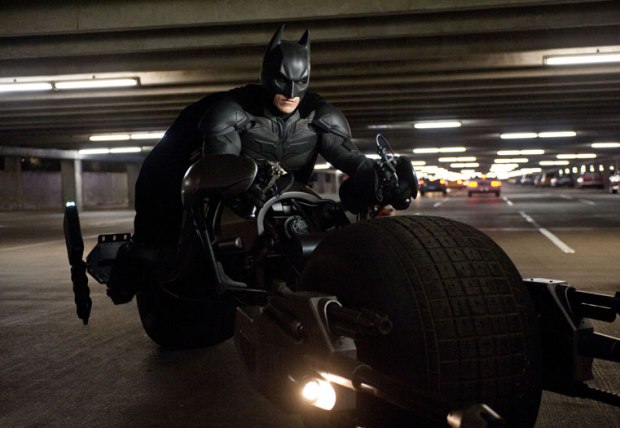
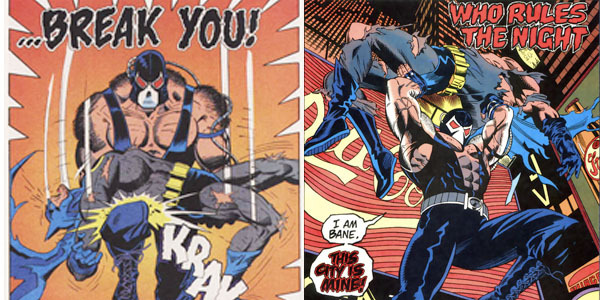
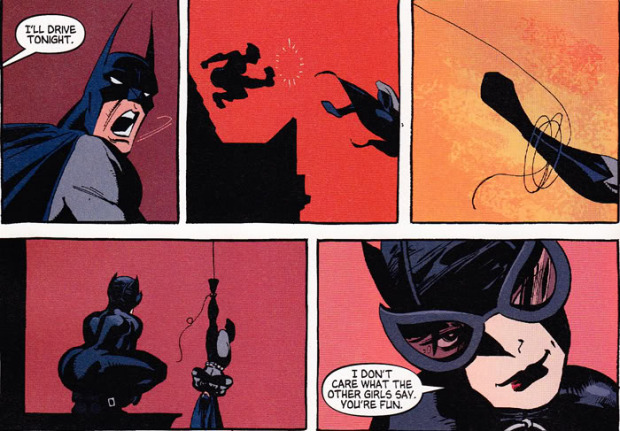
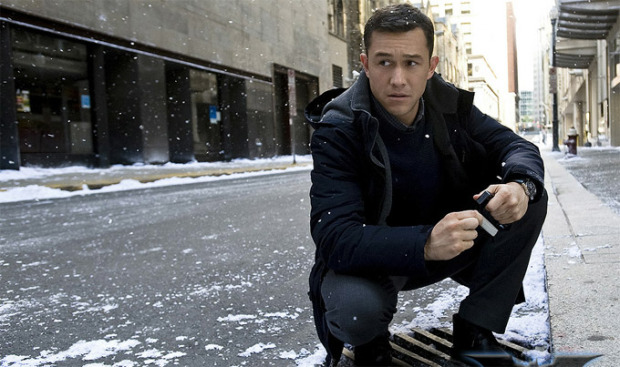

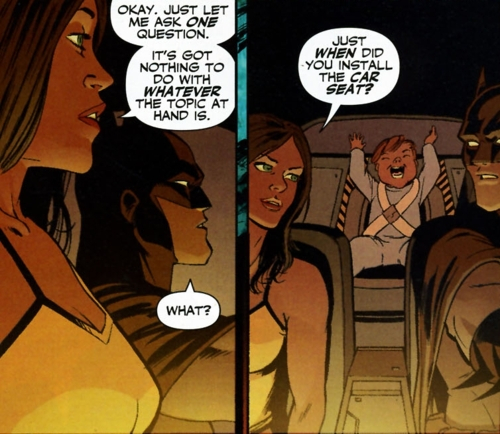
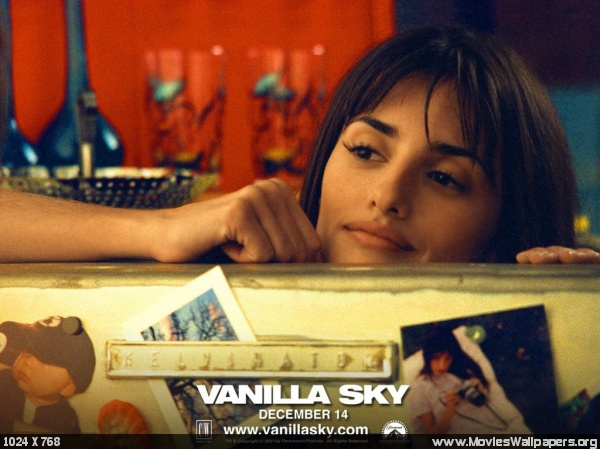
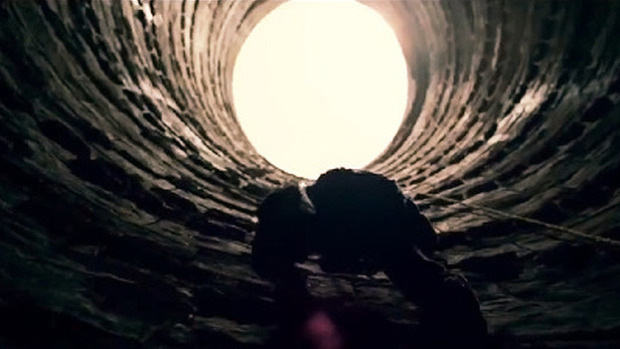
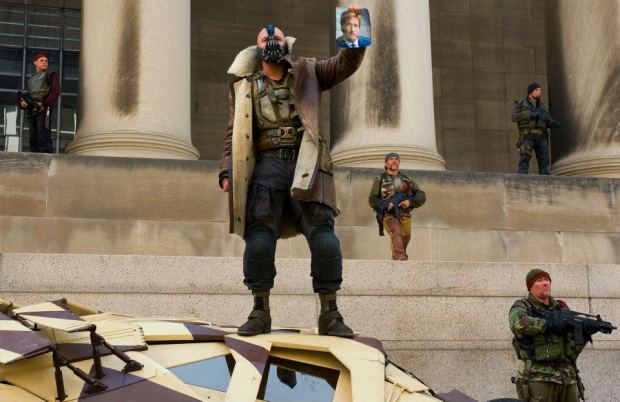
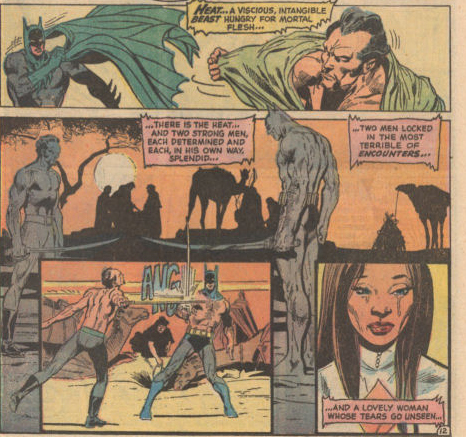
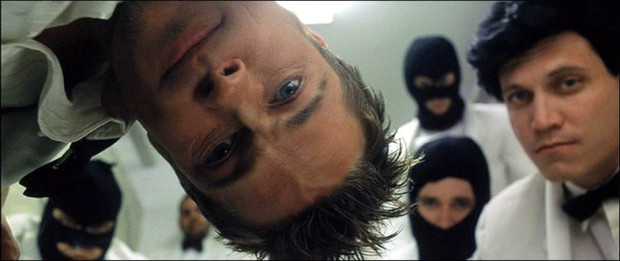
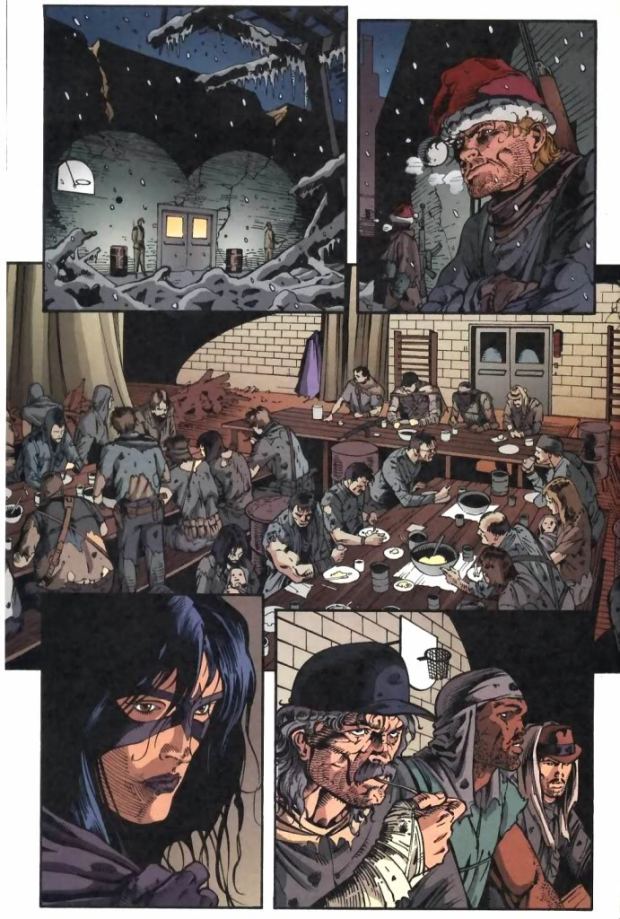
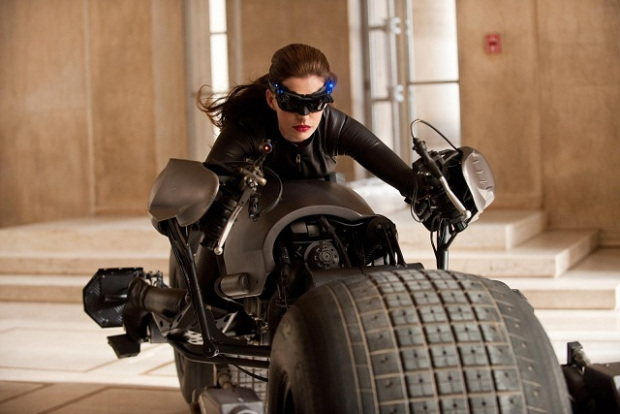
2 Kommentare